Become a Social Worker in California: License Requirements and Educational Programs
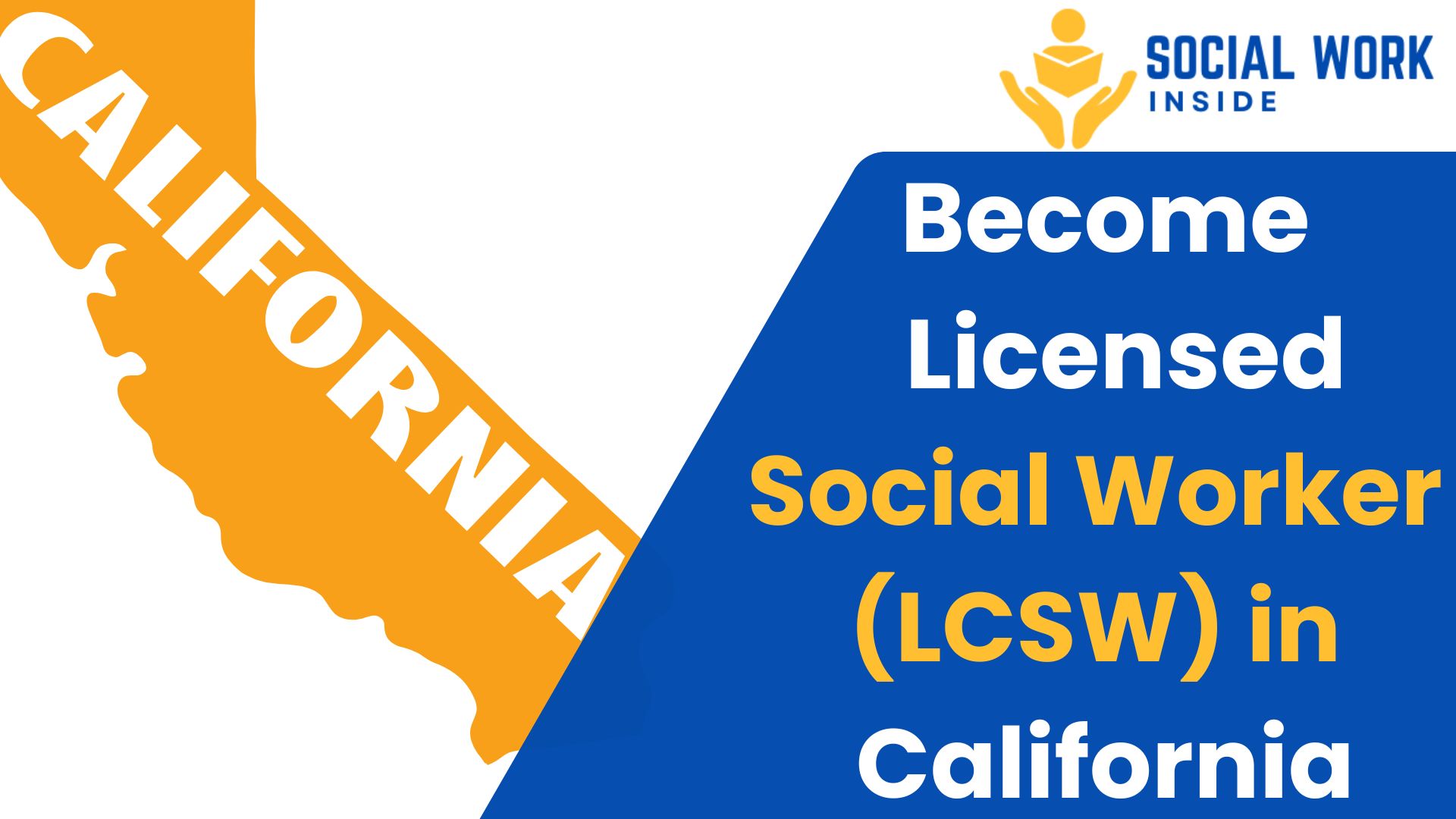
Are you passionate about helping others and considering a career as a social worker in California? The Golden State offers a rewarding path for aspiring social workers, with a clear licensing process and top-tier educational programs to get you started. This comprehensive guide explores the California social work license requirements, the steps to become a Licensed Clinical Social Worker (LCSW), and the best programs to kickstart your career. Whether you’re just beginning or advancing your expertise, here’s everything you need to know to become a social worker in CA.
Why Become a Social Worker in California?
California is home to one of the largest social work workforces in the U.S., driven by its diverse population and complex social needs. From supporting vulnerable communities in Los Angeles to addressing mental health challenges in San Francisco, social workers in CA play a vital role. According to the Bureau of Labor Statistics (BLS), employment for social workers in California is projected to grow by 12% through 2030—faster than the national average. With competitive salaries (averaging $65,000–$90,000 annually for LCSWs) and a robust demand, now is the perfect time to pursue this career.
California Social Work License Requirements
To practice as a professional social worker in California, you’ll need to meet the requirements set by the California Board of Behavioral Sciences (BBS). The most common licensure goal is becoming a Licensed Clinical Social Worker (LCSW), which allows you to provide clinical services like therapy. Below are the key steps:
Understand Your Options
Social work in California offers multiple entry points, depending on your goals:
- Entry-Level Roles: A Bachelor’s in Social Work (BSW) opens doors to non-clinical jobs like case management or community outreach.
- Clinical Practice: To become an LCSW and provide therapy, you’ll need a Master’s in Social Work (MSW) and licensure.
- School Social Work: Pair an MSW with a Pupil Personnel Services Credential (PPSC) to work in schools.
Your first decision? Choose the path that matches your passion—then build from there.
1. Earn a Master’s Degree in Social Work (MSW)
- Requirement: A Master’s degree from a program accredited by the Council on Social Work Education (CSWE) is mandatory.
- Why It Matters: An MSW provides the foundational knowledge and skills for clinical practice, including coursework in human behavior, policy, and counseling.
- Tip: California requires specific coursework, such as 10 hours of training in aging and long-term care, so ensure your program aligns with BBS standards.
2. Associate Clinical Social Worker in California
Associate Clinical Social Workers (ACSWs) work under the guidance of LCSWs or similar mental health professionals to gain the experience needed to become fully licensed. While supervised, ACSWs can practice in settings like private practices, agencies, or organizations, but only as employees or volunteers—not independently or billing clients directly.
California Licensure Requirements for an ACSW Includes:
- Master’s Degree in Social Work: Earned from a CSWE-accredited program.
- Relevant Coursework/Experience: 66 hours (81 hours for out-of-state applicants) of applicable training or experience.
- California Law and Ethics Course: 12-hour course required for out-of-state/country applicants and those graduating on or before December 31, 2007.
- Passing the California Law and Ethics Exam: Demonstrates knowledge of state-specific standards ($100 fee).
- BBS ACSW Registration: Complete the application process ($150 fee) with a background check.
- Supervised Hours in Progress: Begin accumulating the 3,000 hours required for LCSW licensure over 104 weeks.
3. Licensed Clinical Social Worker in California
Licensed Clinical Social Workers (LCSWs) have completed their supervised training and passed the necessary exams for full licensure, allowing them to work independently or in various settings and bill clients directly. LCSWs provide clinical services like counseling and psychotherapy, while also connecting communities to resources, advocating for systemic change, and contributing to research.
California Licensure Requirements for an LCSW Includes:
- Master’s Degree in Social Work: From a CSWE-accredited school.
- Relevant Coursework/Experience: 66 hours (81 hours for out-of-state applicants) of training or applied experience.
- California Law and Ethics Course: 12-hour course for out-of-state/country applicants and graduates on or before December 31, 2007.
- Passing the California Law and Ethics Exam: Completed during ACSW phase ($100 fee).
- Minimum 3,000 Supervised Hours: Over 104 weeks, with at least 1,700 client-facing hours.
- Passing the ASWB Clinical Exam: National clinical-level exam ($260 fee).
- BBS LCSW Licensure Application: Final step with a $250 fee.
4. Pass Required Examinations
- California Law and Ethics Exam: Taken during your ACSW period ($100 fee).
- ASWB Clinical Exam: A national exam testing clinical competency ($260 fee).
- Preparation Tip: Invest in study guides or prep courses—pass rates improve with structured preparation.
California offers two primary pathways:
| License Type | Scope | Exam Requirements |
| ACSW | Pre-licensure (supervised practice) | California Law & Ethics Exam |
| LCSW | Clinical practice, private therapy | ASWB Clinical Exam + Law & Ethics |
5. Apply for LCSW Licensure
The finish line! Once you’ve met all requirements:
- Submit your LCSW application to the BBS ($250 fee).
- Await approval—processing can take a few weeks.
- Celebrate: You’re now a Licensed Clinical Social Worker in California!
California vs. Nevada: Key Differences
| Requirement | California | Nevada |
| Supervised Hours | 3,000 | 2,000 |
| Law & Ethics Exam | Required | Not required |
| License Transfer | No reciprocity | Reciprocity allowed |
Suggested: How to Get a Social Work License in Florida
How Long Does It Take to Become a Social Worker in California?
Your timeline depends on your starting point:
- BSW to Entry-Level: 4 years.
- BSW + MSW + LCSW: 7–9 years (4 years BSW, 2 years MSW, 2–3 years supervision).
- MSW + LCSW: 5–7 years if you skip the BSW.
Want to speed up? Advanced standing MSW programs (1 year) are an option with a BSW.
Specializing as a License School Social Worker
Interested in schools? You’ll need:
- An MSW from a CSWE-accredited program.
- A Pupil Personnel Services Credential (PPSC) with a Social Work specialization (offered by many California MSW programs).
- Field experience in educational settings.
The PPSC unlocks roles like school counselor or student advocate—no LCSW required, though some add it for flexibility.
Top MSW Programs in California
| School | Enrollment Type | 2024 In-State Tuition |
| UC Berkeley | On-campus | ~$14,395 (per year) |
| USC | online & On-campus | ~$52,828 (total program, ~$26,414/year for 2 years) |
| CSU Long Beach | On-campus | ~$8,268 (per year) |
| San Diego State University | On-campus | ~$9,154 (per year) |
| UCLA | On-campus | ~$14,906 (per year) |
| CSU Northridge | online | ~$8,500 (per year) |
| San Jose State University | On-campus | ~$9,000 (per year) |
| CSU Sacramento | On-campus | ~$8,700 (per year) |
| CSU Fresno | On-campus | ~$8,500 (per year) |
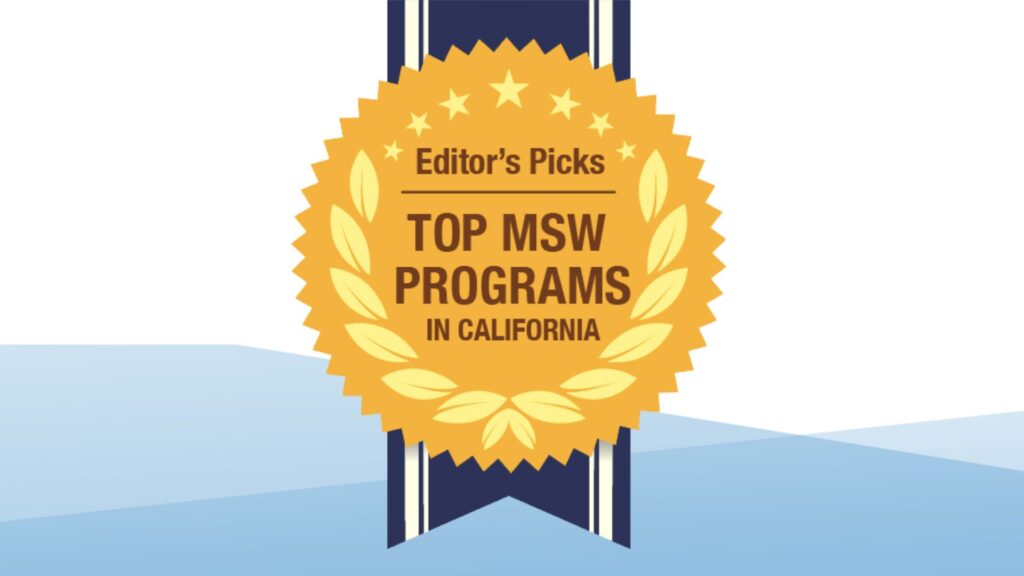
Read this Also: LMSW vs. LCSW difference
California Social Worker Career and Salary Outlook
| Occupation | Average Annual Salary | Average Hourly Salary |
| Family and Child Social Worker | $68,000 | $32.69 |
| School Social Worker | $70,500 | $33.89 |
| Mental Health & Substance Use Social Worker | $83,000 | $39.90 |
| Licensed Clinical Social Worker (LCSW) | $95,000 | $45.67 |
Staying Licensed: Renewal and Continuing Education in California
Once you’re an LCSW:
- Renewal: Every 2 years ($220 fee; $320 if late).
- Continuing Education (CE): 36 hours per cycle, including 6 in law and ethics.
- First-Timers: Only 18 hours + a 7-hour HIV/AIDS course initially.
Tap into NASW California Chapter workshops or online CE for convenience.
Navigating Social Work License Reciprocity in California
Moving to California? No full reciprocity, but out-of-state LCSWs with 2+ years or 3,000 hours can apply for Licensure by Credential. You’ll still need the Law and Ethics Exam. Leaving CA? Your ASWB Clinical Exam score eases the transition elsewhere.
Social Work Associations in California
Boost your career with these vibrant networks:
- NASW California Chapter: Offers CE, advocacy, and events.
- California Association of School Social Workers (CASSW): Elevates school-based pros.
- Specialize: Certifications in telehealth or trauma care boost employability.
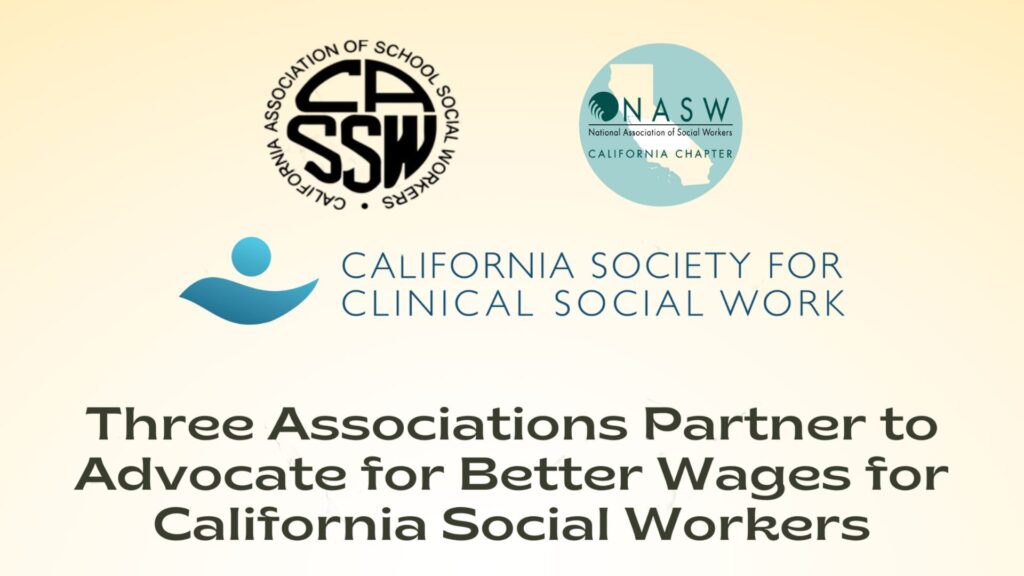
Alternative Social Work Credentials in California
Not ready for an LCSW? California offers other pathways:
- Associate Clinical Social Worker (ACSW): A stepping stone to LCSW licensure.
- Licensed Marriage and Family Therapist (LMFT): Focuses on therapy but requires a different track.
- Social Work Jobs Without Licensure: Roles like case manager or community outreach worker often require only a Bachelor’s in Social Work (BSW).
Pro Tips for 2025 Success
- Network: Join NASW California for mentorship.
- Stay Updated: Subscribe to BBS newsletters.
- Specialize: Certifications in telehealth or trauma care boost employability.

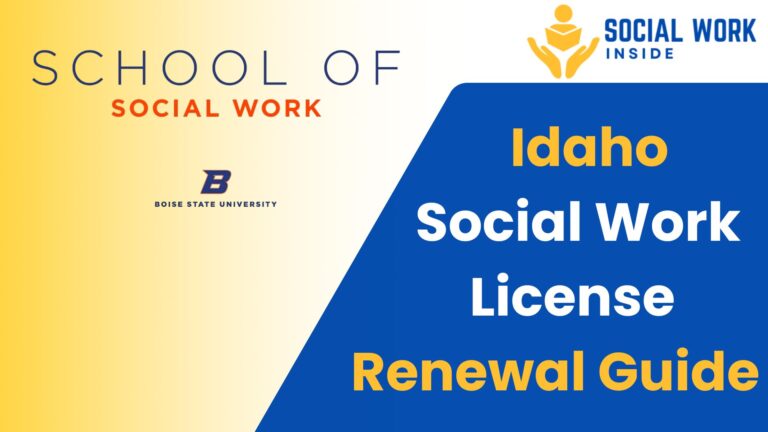

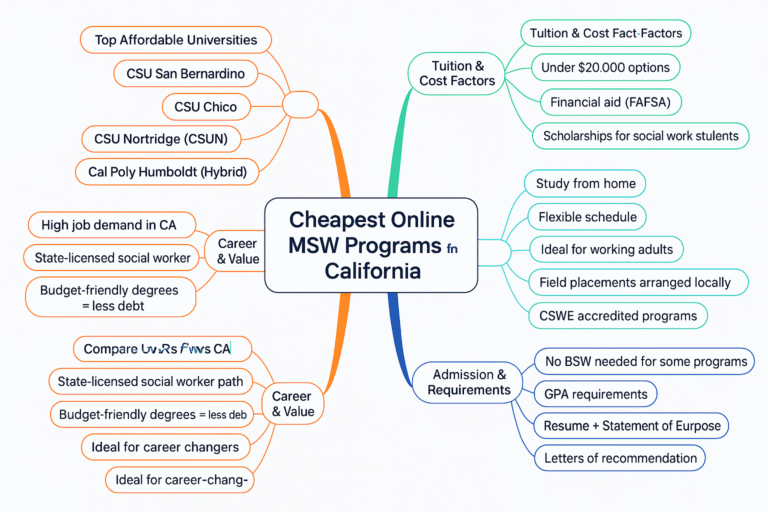

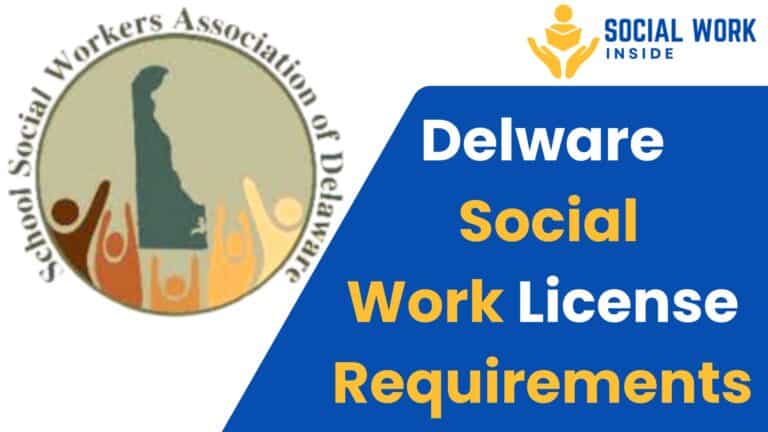
One Comment